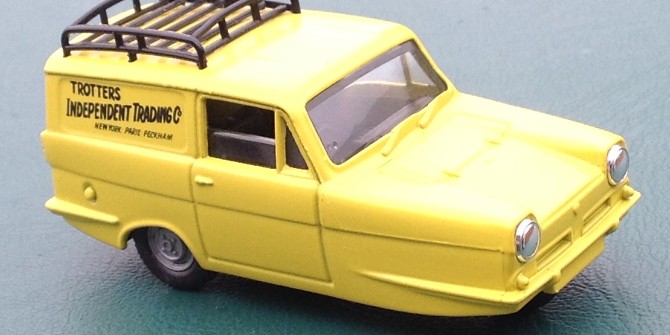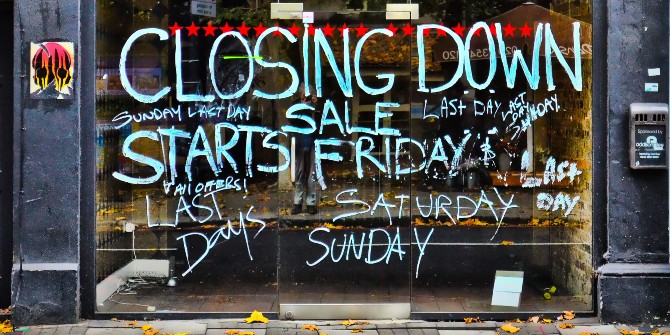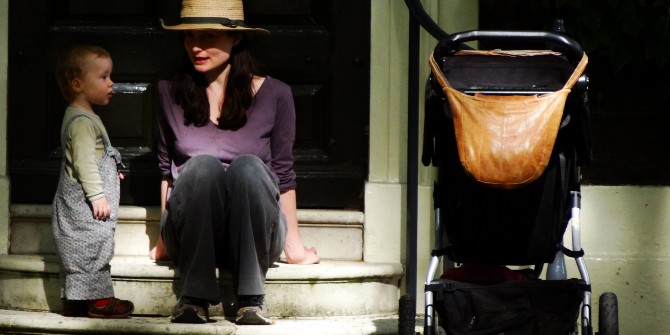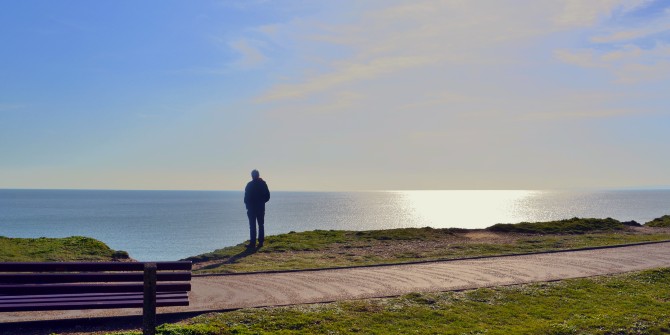We are repeatedly told that a COVID-19 vaccine is around the corner. Paul Dolan (LSE) and Steve Martin (Columbia) argue that this is a deliberate strategy. Restrictions on our civil liberties are more palatable if we believe they will soon be over.
In Only Fools and Horses, Del Boy was famously optimistic about the financial prospects of the Trotter family, despite the perennial failures of his money-making schemes. He’s not alone. Although levels of optimism clearly vary between individuals, evidence suggests that, overall, most of us have a generally optimistic view of the future. But not, it would seem, when it comes to the pandemic. Over these last six months, most of us would be hard pressed to find any reason for optimism. Should we conclude, therefore, that our elected officials and their advisors are anything but Del Boy-like, at least when it comes to optimism?
Perhaps not, because there is one COVID-related context where our elected officials’ optimism is not just evident, it’s positively thriving. We’re talking about the impending arrival of the much-needed vaccine. In spring, we were told we might have one in autumn. The summer news bulletins explained that one could be available by winter. Now that we are in autumn, there’s every chance we’ll have a vaccine by spring. A vaccine always seems to be six months away.

Given the past is the only reliable place we can look when predicting the future, such estimates seem wildly optimistic. The fastest previous vaccine development, for mumps, took four years. Even allowing for subsequent scientific advances and the resources being committed to a vaccine, we suspect a realistic time frame for a COVID vaccine would be two years after the virus first hit – spring 2022. Even then it will take time to inject it into arms at scale. So more like late 2022, maybe even 2023. Who knows? It could take longer.
Interesting, then, how at the same time as we are being scared by updates on rising infection rates and the imminent “second wave”, we are also told that a vaccine is around the corner. Perhaps it is just sensible juxta-positioning of precaution and optimism. “Plan for the worse, while hoping for the best”. It’s the kind of sentiment that has been around for a long time: records of the phrase have existed since the 18th century. And it probably helps when it comes to our psychological wellbeing.
But could a more sinister motivation be behind the optimistic notion that a vaccine is only six months away? After all, it might make it easier for governments to justify quite draconian restrictions and regulations. Most of us are willing to endure a loss of certain freedoms, provided we don’t expect them to last for too long. Our acceptance of various types of social distancing, such as the invasive and inconsistent “rule of six”, are surely more palatable after we hear that a vaccine is six months, rather than six years, away.
All the measures designed to suppress the virus have been “sold” to us as temporary and only in place until we get the virus under control. But the uncomfortable truth is we will only get the virus under control once we have reached herd immunity, and there are only two ways to achieve this: naturally, by allowing the virus to steadily pass through the population whilst minimising the harm caused, or through vaccination. Only Sweden is explicitly attempting to reach herd immunity through natural exposure.
So, if only to garner public support for “temporary” restrictions on our civil liberties that would otherwise be deemed unacceptable, it makes sense for governments to go with the grain of our more optimistic selves and suggest we are closer to finding a vaccine than we really are. In his press conference on 30 September, the Prime Minster claimed to be “absolutely confident that with … the prospect of a vaccine, we will get through this.” At the risk of sounding conspiratorial, the mainstream media has probably served to support this agenda by both stoking fear of the virus and simultaneously playing on our optimism that the restrictions could soon be coming to an end.
In his 2009 Foreign Policy piece Why Hawks Win, the Nobel Prize winner Daniel Kahneman and Jonathan Renshon point out how the military are “carelessly optimistic” about their chances of winning a war. This makes war more likely. Maybe the same is true of the current war with COVID? While we wait for a much-needed dose of vaccine, perhaps we would benefit from a dose of realism, by waking up to the government’s carelessly optimistic timelines for a vaccine? At the very least, we should consider the real possibility that natural herd immunity might be a less harmful way to win the war than pinning our hopes on a strategy plucked straight from Del Boy’s book of blind optimism.
This post represents the views of the author and not those of the COVID-19 blog, nor LSE.






The paranoia surrounding the covid situation is astounding. They authorities are continually expecting that people will give up their civil liberties & all the other things that truly matter for a virus akin to the common cold.
Only when the realisation dawns on people that covid is one among many problems and not the only problem will there be any sensible discussion in the world.